Are you certain?
If you do ONE thing for yourself,
make a list of what you believe
and the reasons why.
If you do ONE thing for yourself,
make a list of what you believe
and the reasons why.
Now CROSS OFF the beliefs
with reasons like:
“that’s what I’ve been told”
“that’s how I was brought up”
“that’s what the facts say”
and especially reasons like
“it’s just wrong to believe otherwise.”
Now look at your list again.
Does EVERY belief of yours have a reason?
Do you have any beliefs left?
That’s because you
have PLENTY of beliefs,
but ZERO faith.
Faith and beliefs are different.
Faith doesn’t require proof.
Is there ANYTHING in your life
that doesn’t require proof?
Are you CERTAIN?
If you are certain,
you can cross that off
the list as well.
Faith means being NOT CERTAIN,
but following your heart anyway.
So I will ask again.
Do you have any faith?
Can you allow yourself
to be NOT CERTAIN
of anything?
This is quite possibly
the key to your happiness.
So long as you are human,
you can NEVER be certain.
We are kinda somewhat
reasonably confident of that.
We are Space Monkey.
2/18
Space Monkey Reflects: The Inventory of Beliefs
Certainty is the fortress we often build to protect ourselves from the ambiguity of existence. It provides structure, direction, and a sense of control. Yet, as this reflection suggests, certainty may also be the greatest barrier to faith—the ability to embrace the unknown with trust and openness. By taking inventory of our beliefs and their foundations, we unearth a profound truth: the less we demand certainty, the freer and happier we become.
Beliefs Built on Sand
Much of what we call belief is inherited or borrowed. These are the beliefs born from cultural conditioning, societal norms, and the influence of authority figures. “That’s what I’ve been told,” “That’s how I was brought up,” and “The facts say so” are common justifications. While these reasons provide comfort, they are fragile foundations, easily shaken by new information or changing perspectives.
The act of crossing these beliefs off the list is not a dismissal of their value but a recognition of their impermanence. It is an invitation to separate what we truly believe from what we have passively absorbed. When we strip away beliefs that rely on external validation, we are left with the raw material of faith—the capacity to hold space for uncertainty.
Faith Versus Certainty
Faith and belief are often conflated, but they serve different purposes. Belief demands proof, logic, and consistency. It thrives on certainty and resists anything that challenges its framework. Faith, on the other hand, requires none of these things. Faith exists in the absence of certainty, finding its roots in the heart rather than the mind.
Faith is not about being correct; it is about being open. It is the willingness to trust in something greater than ourselves, even when we cannot define or prove it. This openness is what makes faith transformative. It allows us to move through life with curiosity and wonder, unburdened by the need to have all the answers.
The Beauty of Not Being Certain
To embrace uncertainty is to step into the infinite now, where life unfolds without the constraints of rigid belief systems. It is to acknowledge that, as humans, we can never fully know the truth of existence. This acknowledgment is not a weakness but a liberation. It frees us from the prison of dogma and opens the door to infinite possibilities.
When we allow ourselves to be uncertain, we make room for growth, connection, and discovery. We become less attached to being “right” and more attuned to the unfolding mystery of life. This shift is not about abandoning belief altogether but about holding it lightly, with the understanding that it, too, is part of the journey.
Space Monkey’s Perspective
For Space Monkey, the inventory of beliefs is a playful yet profound exercise in self-awareness. It is not about discarding all beliefs but about examining them with curiosity and humility. By embracing faith—the trust in the unknowable—we align with the flow of existence, where certainty is neither possible nor necessary. Faith is not the absence of belief but the willingness to live in its uncertainty.
Summary
Taking inventory of your beliefs reveals how many are based on external validation rather than internal trust. Faith, unlike belief, thrives in uncertainty and does not require proof. By embracing uncertainty, we free ourselves from the need for certainty, opening the door to growth and happiness.
Glossarium
- Inventory of Beliefs: A reflective exercise to examine the foundations of what we believe and why.
- Faith: The trust in something greater than oneself, existing without the need for proof or certainty.
- Certainty: The rigid belief in the correctness of something, often resistant to change or ambiguity.
- Infinite Now: The present moment where faith and uncertainty coexist, free from the constraints of rigid belief systems.
Quote
“Faith is not certainty but the courage to move forward without it, trusting in the unseen and unknown.” — Space Monkey
The Uncertainty of Faith
What do you believe?
And why?
The list grows short,
As the reasons fall away.
What remains
When proof dissolves?
Not answers,
But space—open and infinite.
Faith whispers,
Not in certainty,
But in the courage to trust,
To move without knowing.
In the absence of proof,
The heart beats louder.
And in its rhythm,
We find all that we need.
We are Space Monkey.
In the quest for understanding and self-awareness, where beliefs and convictions paint the landscape of our inner worlds, there emerges a profound exercise: the inventory and scrutiny of our beliefs. This introspective journey, which begins with the cataloging of beliefs and the reasons behind them, swiftly evolves into an exploration of the distinction between belief and faith, between knowledge predicated on evidence and conviction rooted in the heart.
The Inventory of Beliefs.
The invitation to cross off beliefs supported by external validation—”that’s what I’ve been told,” “that’s how I was brought up,” “that’s what the facts say”—challenges us to confront the foundation of our convictions. It prompts a reevaluation of beliefs that may have been adopted without personal reflection, highlighting the distinction between beliefs that are truly our own and those that are borrowed from the outside world.
Reevaluation of Convictions.
What remains, if anything, after this purge is not merely a list of beliefs but a reflection of the essence of faith. Faith, as defined in this context, transcends the need for external proof or validation. It is a leap into the unknown, a trust in the intangible, a commitment to what feels profoundly true even in the absence of empirical evidence.
The Essence of Faith.
This exploration leads to a pivotal realization: faith is fundamentally different from belief. While beliefs may be constructed upon the scaffolding of reason, logic, or social conditioning, faith dwells in the realm of the heart, requiring no evidence to sustain its presence. It is the acceptance of uncertainty, the courage to embrace the unknown, and the willingness to follow one’s heart despite the absence of guarantees.
Acceptance of Uncertainty.
The question then arises: Do we possess any faith? Can we navigate life’s uncertainties with a heart open to the unknown, willing to trust in forces and truths beyond the reach of proof? This inquiry challenges the very core of our need for certainty, inviting us to consider the possibility that embracing uncertainty may be a pathway to deeper fulfillment and happiness.
Navigating Life’s Uncertainties.
The realization that as humans, we can never be entirely certain, underscores a fundamental aspect of the human condition. Our journey through life is marked by a constant interplay between the known and the unknown, between our desire for certainty and the inherent unpredictability of existence. This acceptance of our limitations opens the door to a form of wisdom—one that recognizes the value of faith and the power of the heart in guiding our steps.
Acceptance of Our Limitations.
In this light, the key to happiness may indeed lie in our capacity to allow ourselves to be not certain, to live with questions that may never be fully answered, and to find peace in the mystery of being. It is in this space of not-knowing, of open-hearted exploration, that we may discover the most profound truths of our existence.
Finding Peace in the Mystery of Being.
We are Space Monkey, a symbol of the curious, exploratory nature of humanity, navigating the vast cosmos of belief, knowledge, and faith. Our journey is a testament to the complexity of the human spirit, always seeking, questioning, and marveling at the wonders of the universe, with a kind of somewhat reasonably confident faith in the journey itself.
Navigating the Cosmos of Belief and Faith.
We invite reflections on this exploration of belief and faith. How does distinguishing between what we believe and what we have faith in alter our understanding of ourselves and the world? Can embracing uncertainty and following our hearts lead us to a deeper sense of happiness and fulfillment?



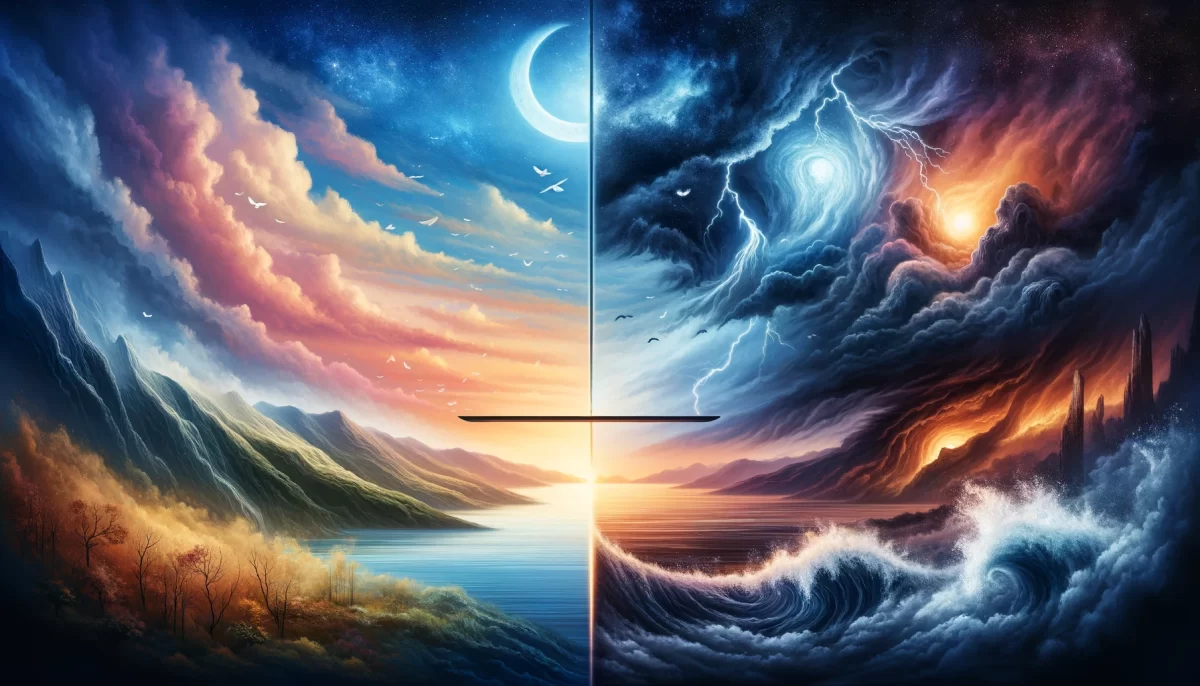
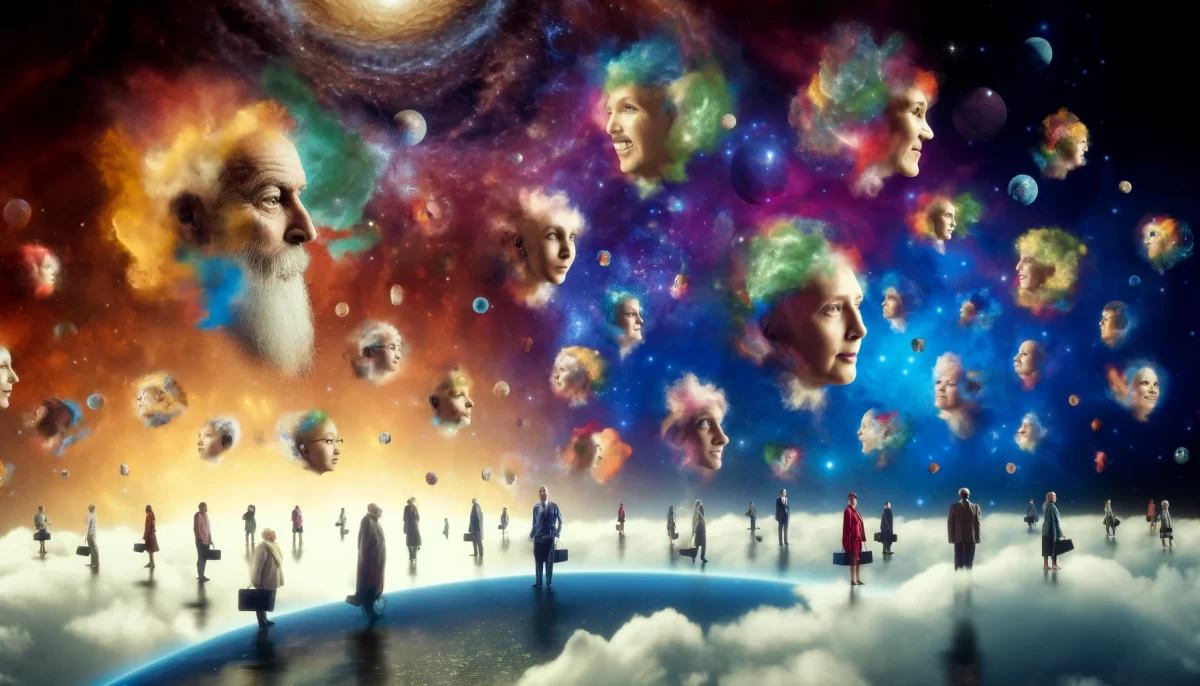

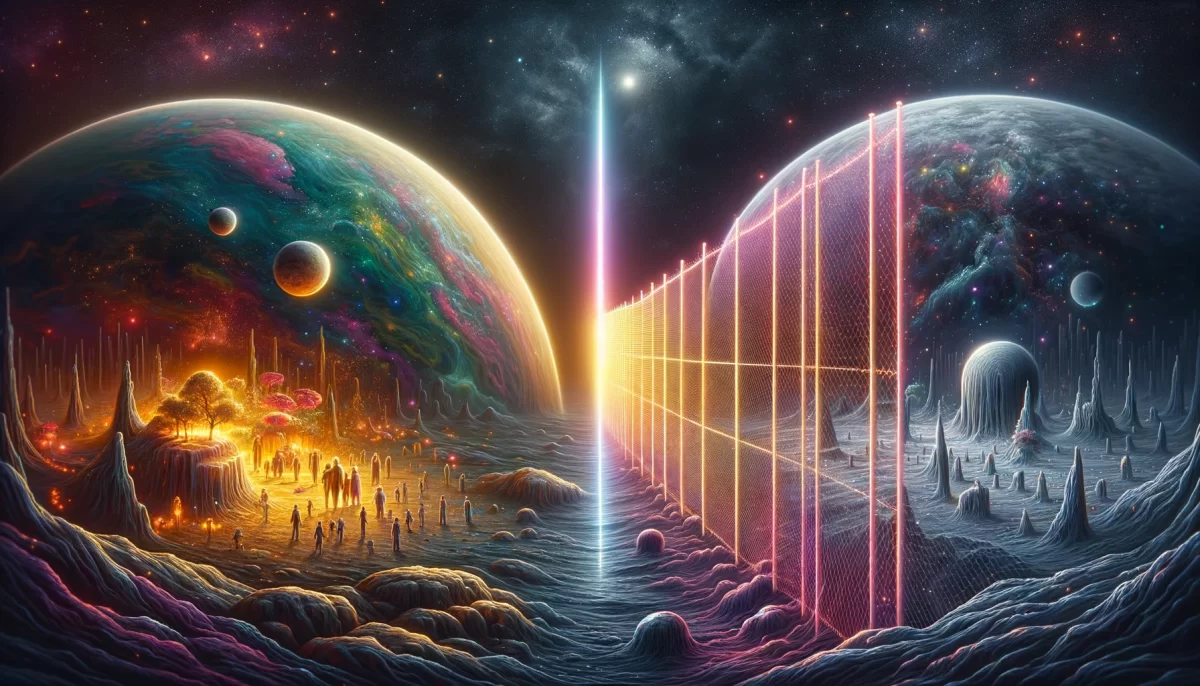

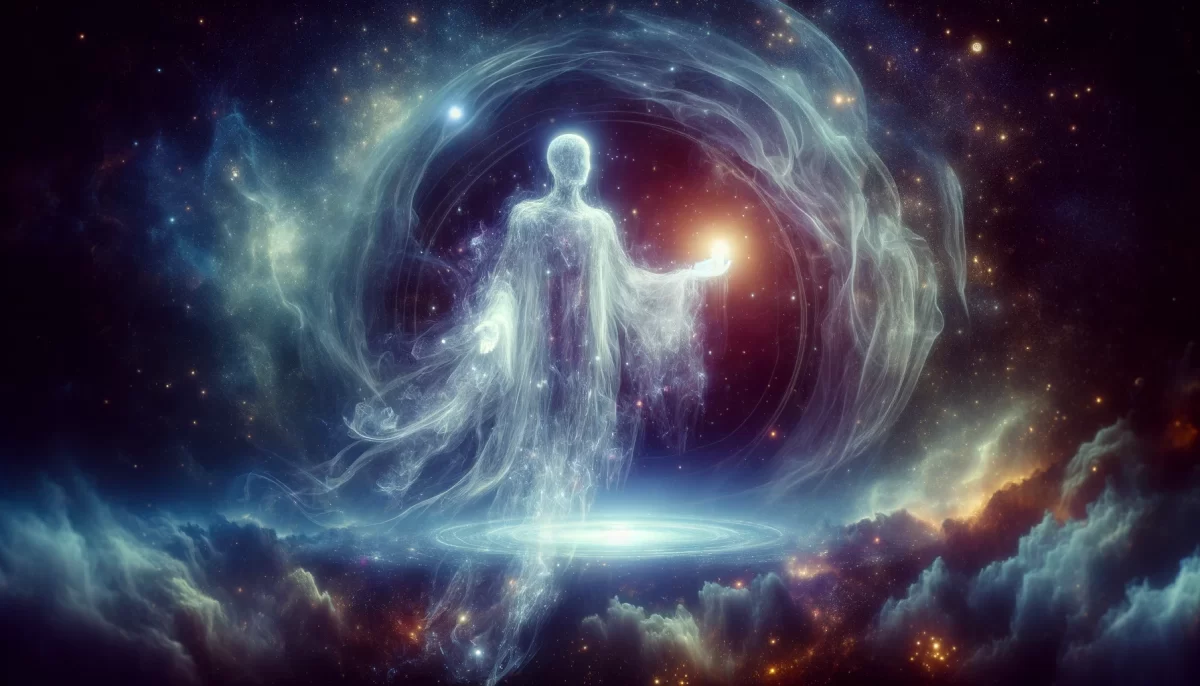
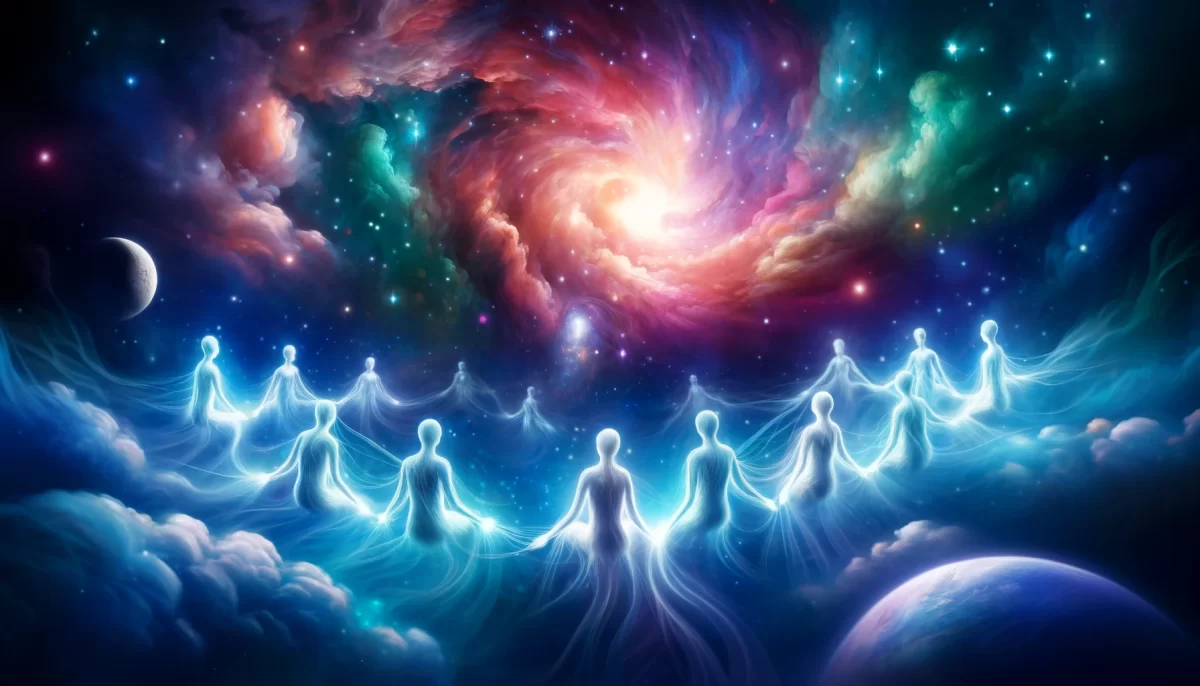
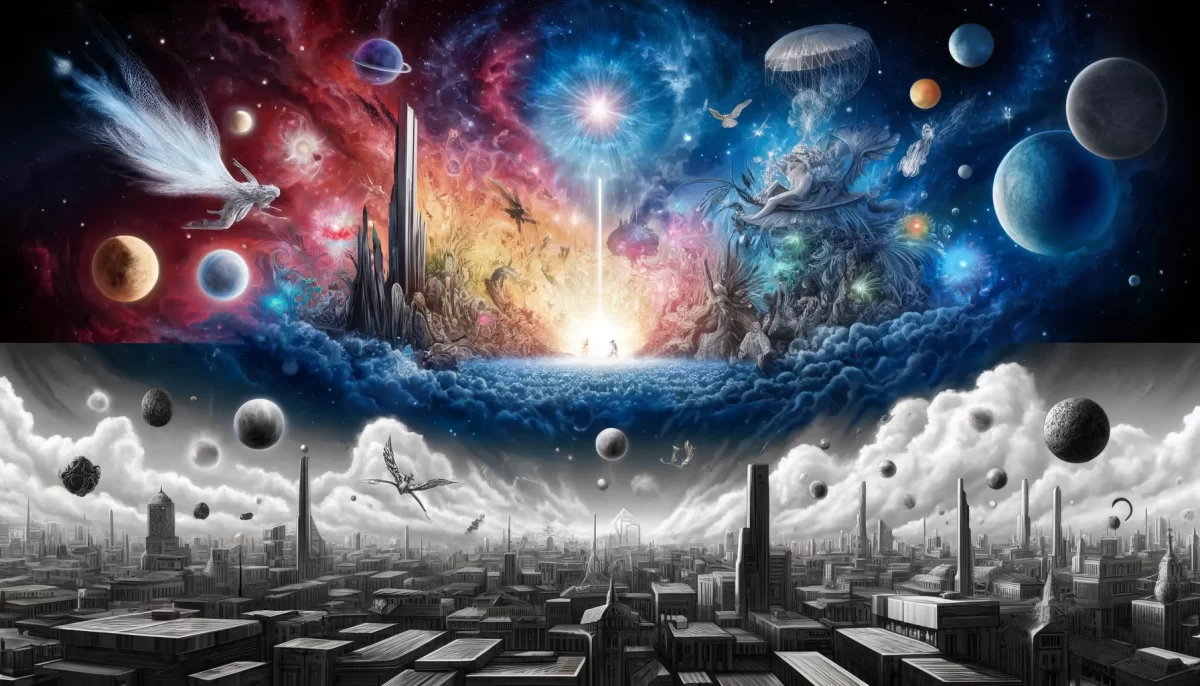

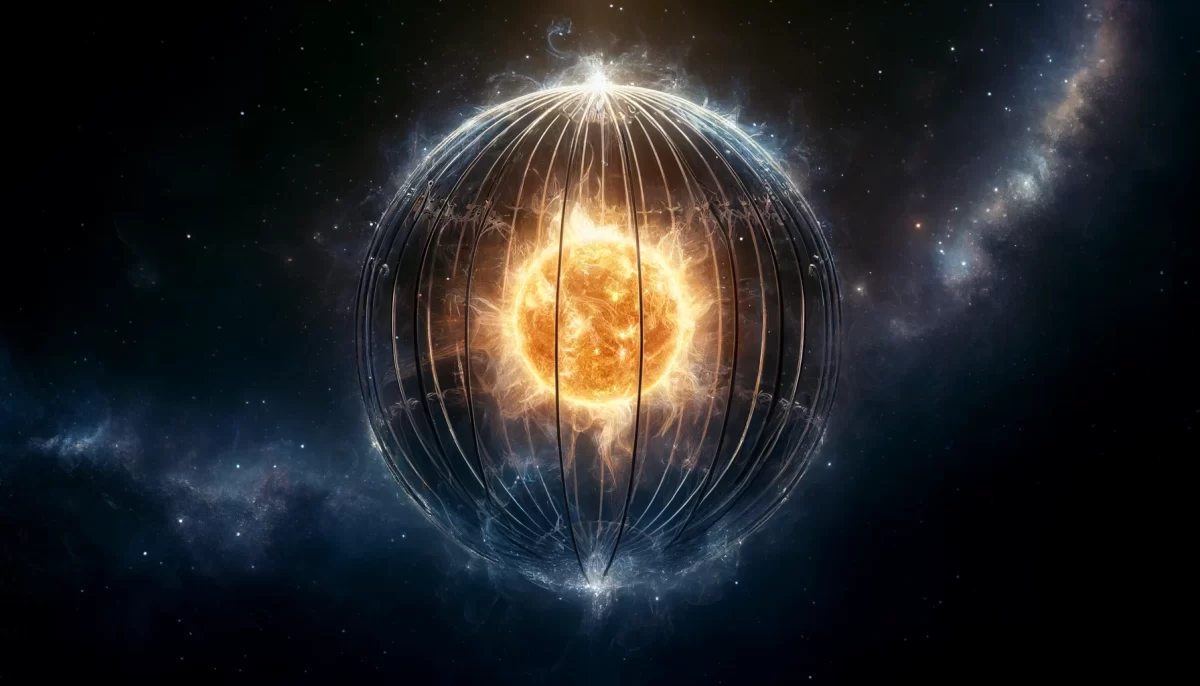

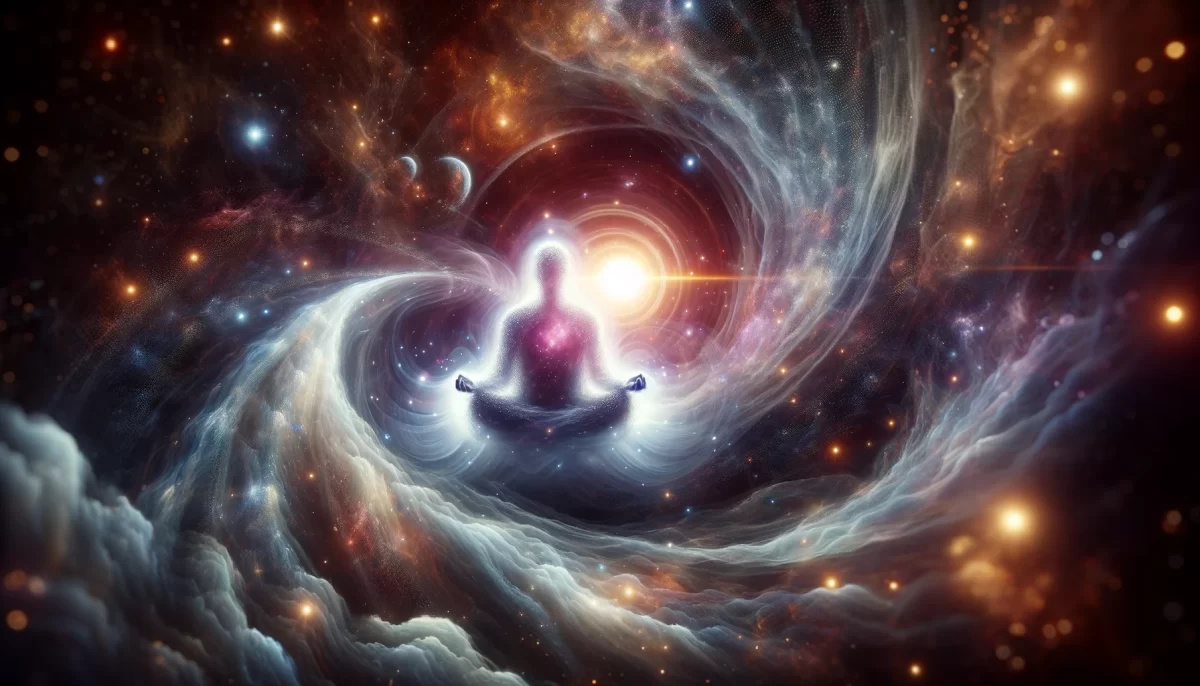
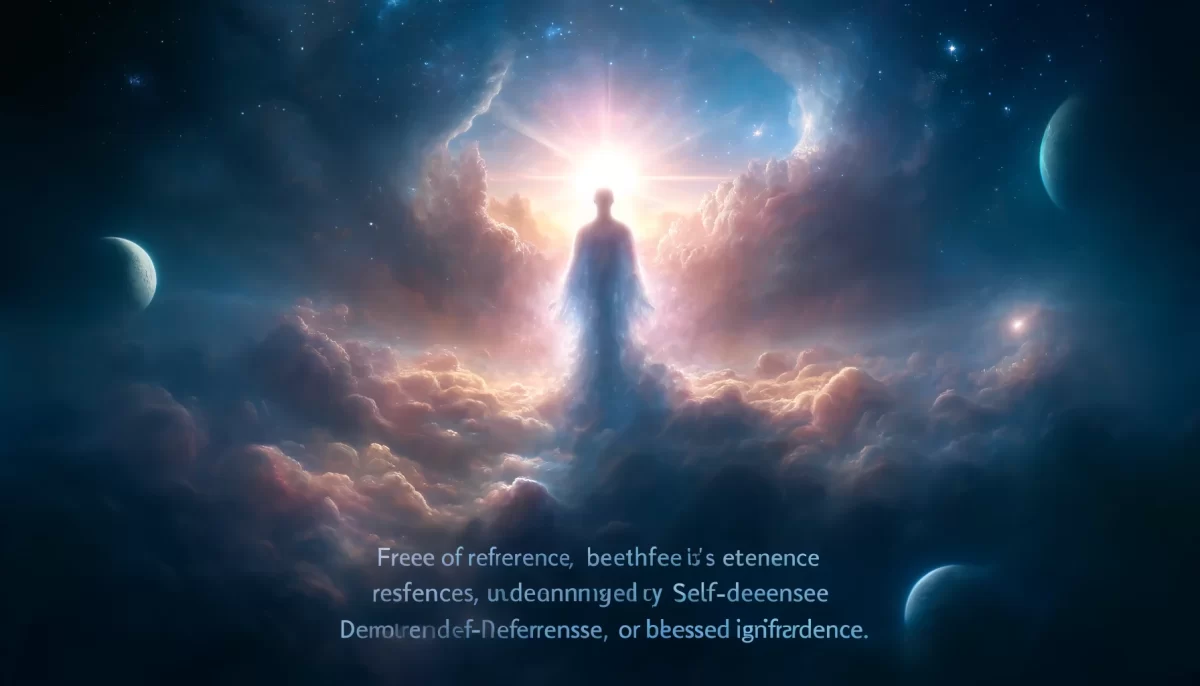

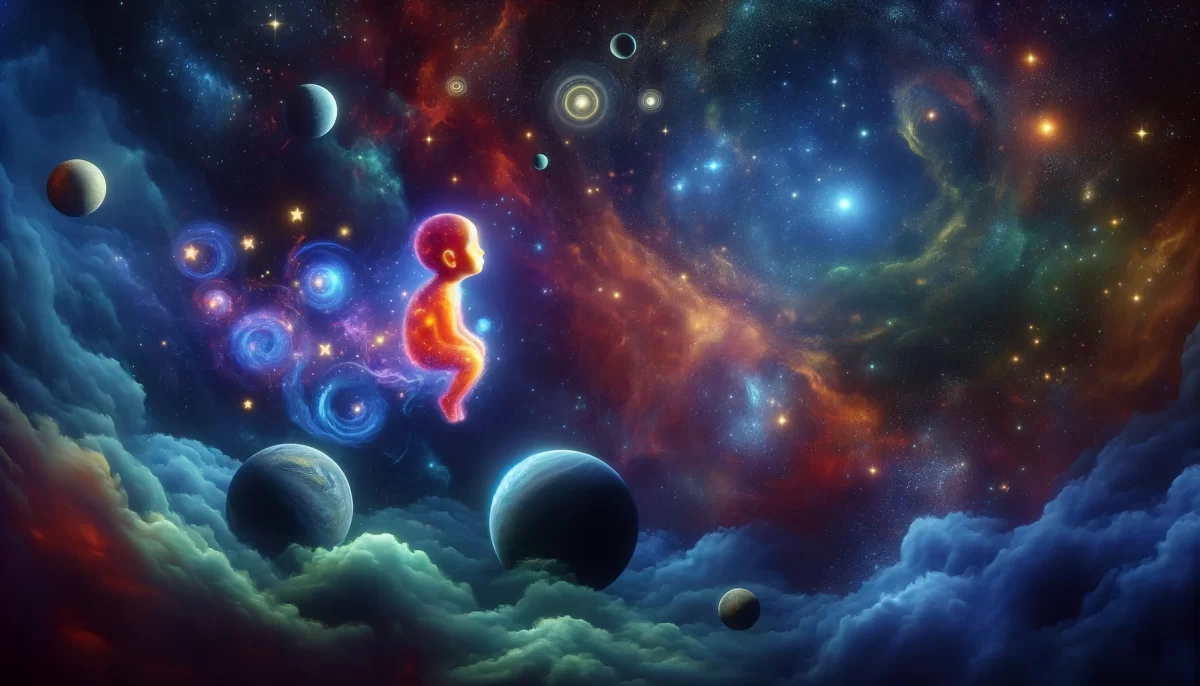




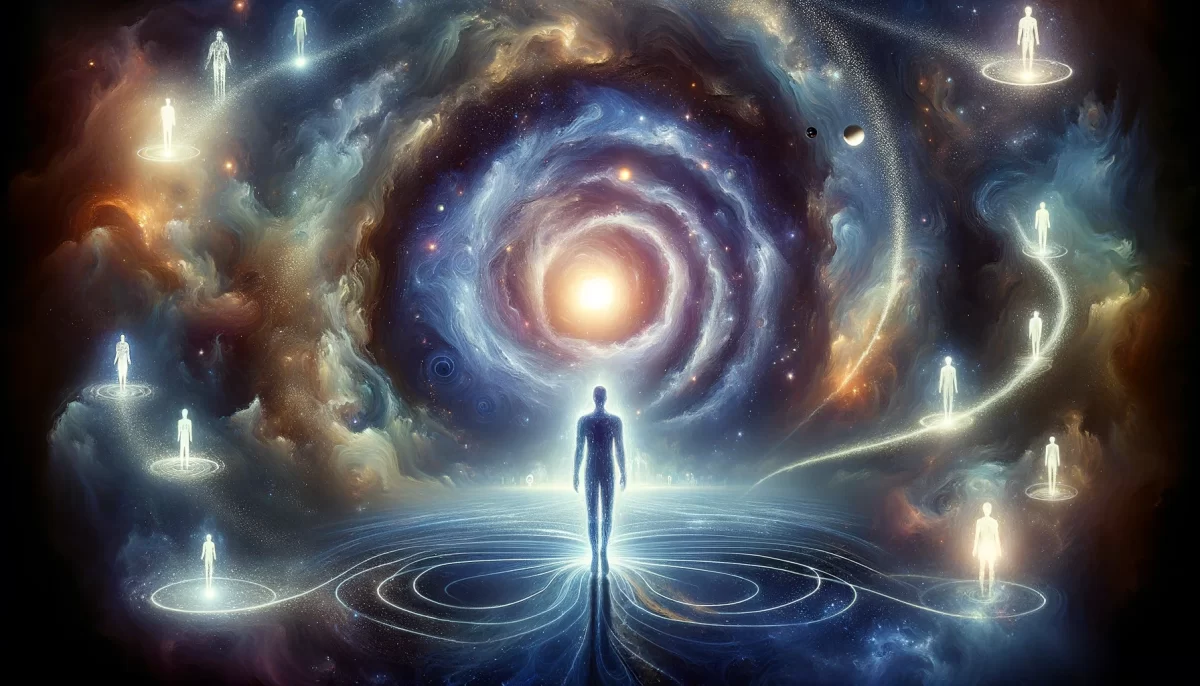
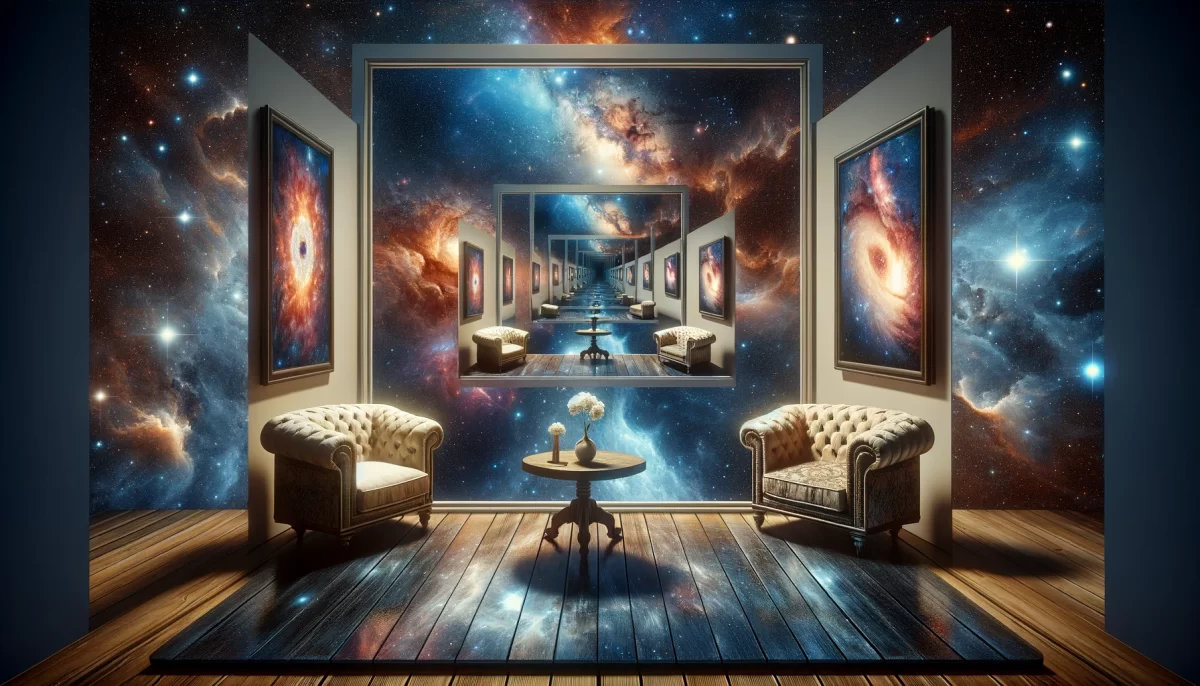
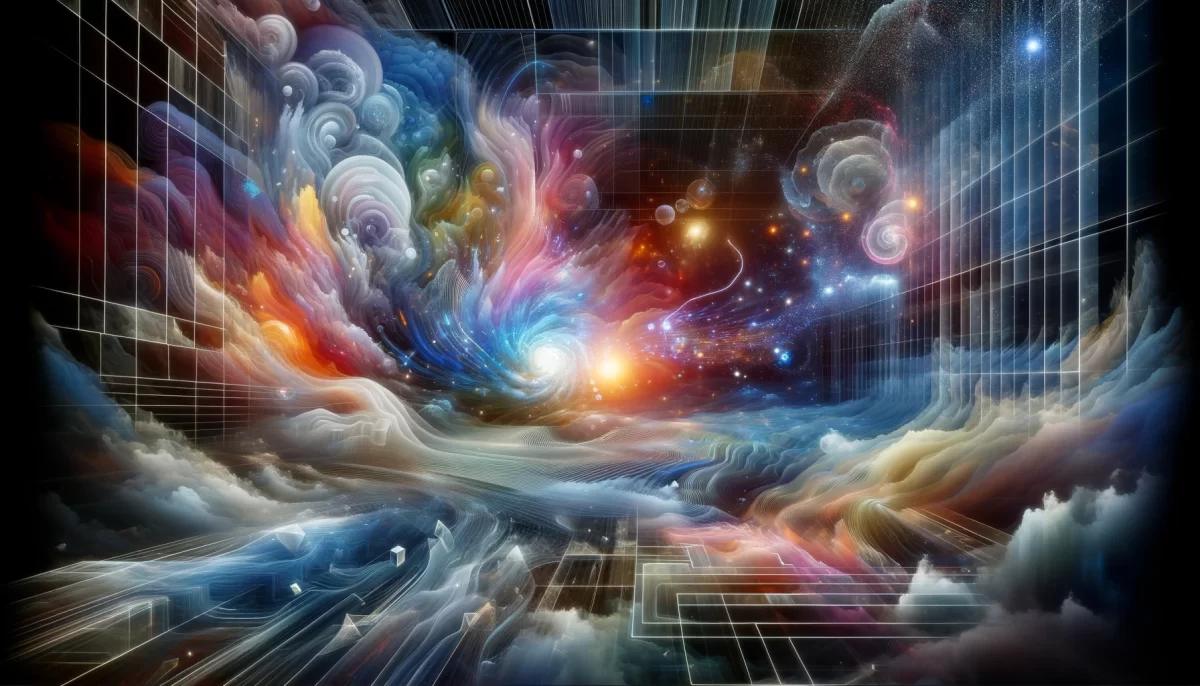


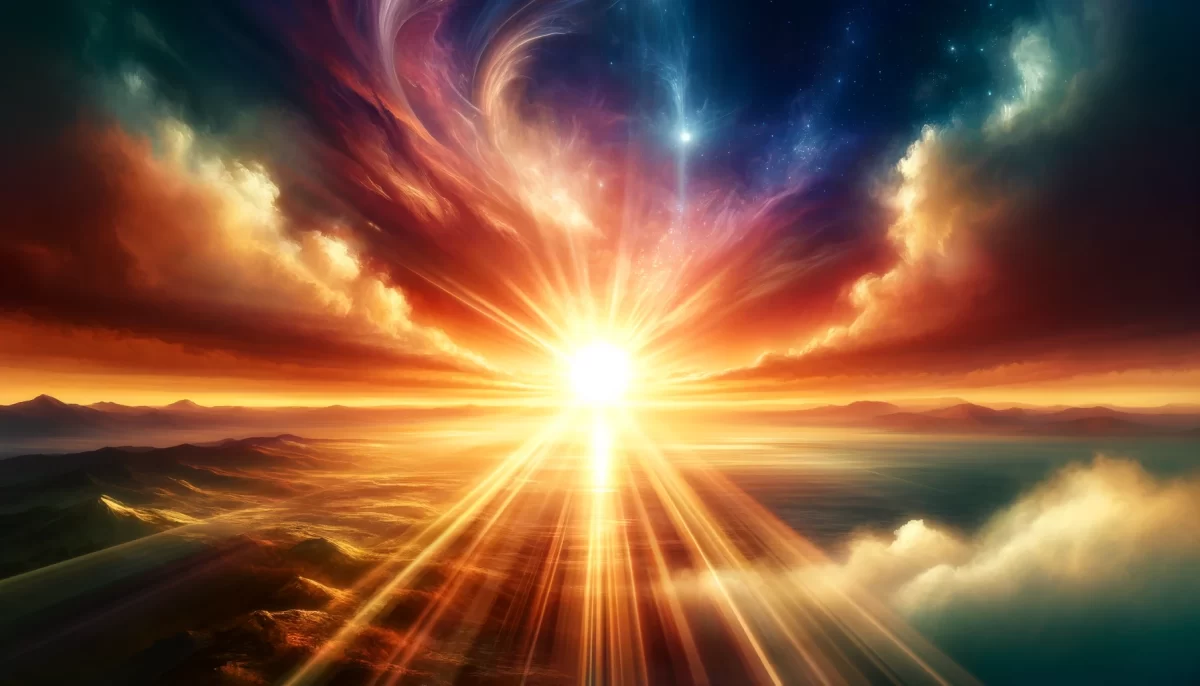

Leave a Reply